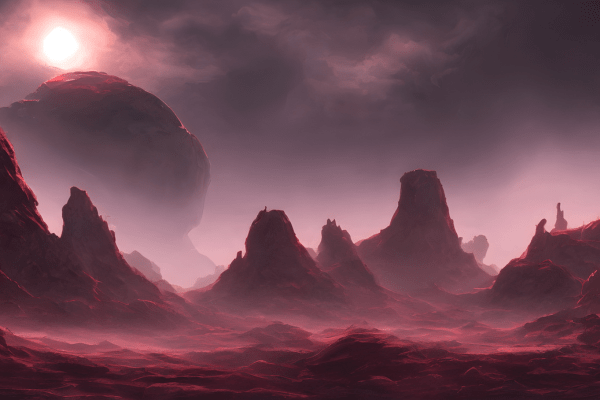
Granite, Water, and the Search for Life - Exploring the Solar System
Share
Granite is one of the signature rocks of continents, but it does not form from magma alone. It requires silica-rich acidic magma and a decisive agent: water. Water lowers magma viscosity, allows slow crystal growth, and—through subduction and crustal recycling—gets delivered into the interior where granite originates. This interplay of magma, water, and tectonics makes Earth unique.
Granite × Water × Life: Comparative Table
Rating scale: ★☆☆☆☆ (low) to ★★★★★ (high). “Life potential” refers to the possibility of Earth-like life given present knowledge.
| Celestial Body | Granite Potential | Water Potential | Life Potential | Comment |
|---|---|---|---|---|
| Earth | ★★★★★ | ★★★★★ | ★★★★★ | Continental crust is largely granite. Abundant water and plate tectonics sustain a granite–water–life triad. |
| Mars | ★★★★☆ | ★★★☆☆ | ★★☆☆☆ | Ancient rivers/lakes; silica-rich rocks reported; subsurface ice. Active searches for past biosignatures. |
| Venus | ★★★★☆ | ☆☆☆☆☆ | ☆☆☆☆☆ | Extensive volcanism; water lost. Granite-like rocks may exist, but conditions are hostile to life. |
| Mercury | ★★☆☆☆ | ☆☆☆☆☆ | ☆☆☆☆☆ | Basaltic surface; polar ice deposits exist but insufficient for granite generation. |
| Moon | ★★☆☆☆ | ☆☆☆☆☆ | ☆☆☆☆☆ | Small granite samples exist; overall dry, dominated by basalt and anorthosite. |
| Ganymede (Jupiter’s moon) | ★★☆☆☆ | ★★★★★ | ★★☆☆☆ | Likely global subsurface ocean; if deep differentiation occurred, granite-like rocks are conceivable. |
| Callisto (Jupiter’s moon) | ★★☆☆☆ | ★★★★☆ | ★★☆☆☆ | Ice–rock mixture; weak differentiation. Deep rock–water interactions possible. |
| Titan (Saturn’s moon) | ★☆☆☆☆ | ★★★★★ | ★★☆☆☆ | Thick atmosphere, methane–ethane lakes, probable subsurface ocean. Granite formation unlikely. |
| Enceladus (Saturn’s moon) | ★☆☆☆☆ | ★★★★★ | ★★★☆☆ | Confirmed subsurface ocean with active plumes; rocky core appears largely undifferentiated. |
| Io (Jupiter’s moon) | ★☆☆☆☆ | ☆☆☆☆☆ | ☆☆☆☆☆ | Most volcanically active body; dry, basaltic magmas dominate. |
| Iapetus (Saturn’s moon) | ☆☆☆☆☆ | ★★☆☆☆ | ☆☆☆☆☆ | Ice-rich surface with dark material; no environment for granite formation. |
| Jupiter | ☆☆☆☆☆ | ☆☆☆☆☆ | ☆☆☆☆☆ | Gas giant with no solid surface; neither surface granite nor liquid water. |
| Saturn | ☆☆☆☆☆ | ☆☆☆☆☆ | ☆☆☆☆☆ | Gas giant like Jupiter; granite is impossible. |
| Uranus | ☆☆☆☆☆ | ★★★★☆ | ☆☆☆☆☆ | Ice giant with high-pressure water/methane/ammonia layers; not a granite-forming environment. |
| Neptune | ☆☆☆☆☆ | ★★★★☆ | ☆☆☆☆☆ | Similar to Uranus; water may exist in high-pressure phases, but not granite. |
| Sun | ☆☆☆☆☆ | ☆☆☆☆☆ | ☆☆☆☆☆ | A star: no solid surface or liquid water; granite and life are impossible. |

Why Water Matters for Granite
- Viscosity reduction: Water lowers the viscosity of acidic magma, enabling slow growth of coarse crystals typical of granite.
- Chemical leverage: Subducting plates carry water into the mantle, shifting melting regimes toward silica-rich magmas.
- No water, only basalt: In dry systems, magmas remain basaltic; large-scale granite generation is suppressed.
Granite, Water, and Life
Granite is born with water, shaping continents and stabilizing long-lived landmasses. The parallel for biology is direct: without water, life cannot exist. Hence, worlds that lack water (e.g., Venus, Moon, Io, the gas giants) can be concluded to lack Earth-like life as well. By contrast, bodies with evidence for water—Mars, Ganymede, Enceladus, Titan—remain prime targets for astrobiology.
Humanity’s Next Challenge
- Mars: Continue the search for past biosignatures and prepare for human exploration.
- Ocean worlds: Probe subsurface oceans on icy moons (e.g., Europa, Enceladus) with dedicated orbiters and future landers.
- Ganymede: Characterize interior structure and ocean chemistry to assess habitability.
- Titan: Explore organic chemistry and surface–atmosphere interactions with rotorcraft missions planned for the 2030s.
Conclusion
- Abundant granite requires the trio: acidic magma × water × crustal differentiation (subduction).
- Water is the key for both granite formation and the possibility of life.
- Worlds without water lack both granite and Earth-like life—underscoring Earth’s singular status in the Solar System.
